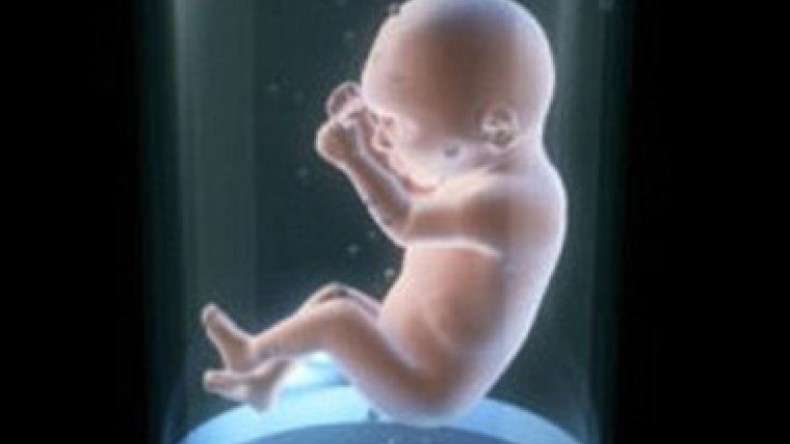
Artificial wombs could be widely used in 30 years
Within 30 years, a futurist believes babies will regularly be born in artificial wombs, outside of human bodies, the Daily Mail reports.
The technology, known as ectogenesis, has been in development since 2001 and previous experiments involved growing mouse embryos in wombs attached to ‘placenta machines.’
Campaigners believe it could reduce the number of still births, because foetuses would be more closely monitored and accessible, but critics claim it could redefine social roles.
Others have stated it removes the bond between a mother and her child.
Ectogenesis is the growth of an organism outside of a body, and applies to animals as well as the growth of bacteria.
Artificial wombs need an artificial uterus that supplies nutrients and oxygen to the foetus.
Custom-built amniotic fluid sacs would also need to remove waste.
This would be attached to a ‘placenta machine’, and cables could monitor everything from the baby’s weight to heart rate and development.
It could be used for women who are unable to carry babies naturally, due to a damaged uterus for example.
The technology may also remove the need for surrogate mothers for straight and gay couples.
Elsewhere, artificial wombs would reduce the number of pregnancy and birth-related deaths among women, could extend the age at which women give birth, and drugs could be more easily administered to the foetus if it became ill.
American-Hungarian futurist Zoltan Istvan told Motherboard he believes the technology will be ready to use within 20 years, and become widely available in 30.
He claimed much of the technology already exists, but legal and ethical concerns will result in human trials being delayed.
Newsfeed
Videos






























